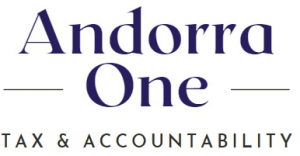Introduction
Andorra, a small country located in the Pyrenees, has gained notoriety among entrepreneurs and freelancers due to its attractive taxation and quality of life. For those interested in establishing themselves as self-employed in Andorra, it is crucial to understand how the self-employed quota works in this country and how it is calculated. In this article, we will break down the fundamental aspects of the self-employed quota in Andorra for 2024 and the factors that influence its determination.
What is the Self-Employed Quota in Andorra?
The self-employed quota in Andorra is a mandatory monthly payment that all self-employed workers must make to contribute to the Caixa Andorrana de Seguretat Social (CASS) system. This payment ensures access to healthcare services and accumulates rights for retirement. Unlike other countries, Andorra does not have a universal flat-rate system; the quota is calculated based on several factors that will be detailed below.
Factors Influencing the Self-Employed Quota
The quota that a self-employed person must pay in Andorra is influenced by several elements, such as:
- Access to Self-Employment: Depending on whether you are a “corporate self-employed” or if you opt for the “qualified profession” route, the quota varies significantly.
- Age: Those under 35 can benefit from discounts during the first years of activity.
- Billing and Profits: The quota can be adjusted according to the billing or profits obtained by the self-employed person.
- Employment Status: If the self-employed person is already contributing as an employee for at least the minimum wage, this can affect the amount of the quota.
Calculation of the Self-Employed Quota in Andorra
The calculation of the quota is mainly based on the country’s average salary of the previous year. For 2024, the standard monthly quota is 22% of the average salary, which in 2023 was €2,426.70, resulting in a quota of €533.87 per month.
Calculation Example:
Average Salary in 2023: €2,426.70/month
Applied Percentage: 22%
Monthly Quota: €2,426.70 * 22% = €533.87/month
Discounts and Reductions
Andorra offers some discounts and reductions on the quota for certain groups. For example:
- New Self-Employed (Under 35 Years Old): During the first year of activity, they can benefit from a reduced quota of €210.43/month.
- Qualified Professions: Those with university degrees recognized by the Andorran government and who meet the B2 level of Catalan can access reduced quotas, especially during the first years of activity. In these cases, the quota could be as low as €76/month during the first year.
What Does the Self-Employed Quota Include?
The payment of the self-employed quota in Andorra provides access to two main benefits:
- Healthcare: The healthcare system in Andorra operates under a co-payment scheme, where the state generally covers 75% of medical costs, and the self-employed person covers the remaining 25%. In case of hospitalization or surgery, the state covers 90% and the self-employed person 10%.
- Retirement: Contributions made to the CASS system also count towards retirement, and there is an agreement with Spain that allows contributions made in one of these countries to be recognized in the other.
Recent Changes and Future Considerations
In November 2023, a law was passed that modified the self-employed regime in Andorra. These changes make it even more important to carry out a detailed analysis of each individual situation to optimize the payment of the quota. Additionally, a new modification is expected in January 2025, suggesting that self-employed people should stay informed and consider adjustments according to the current regulations.
Conclusion
Establishing oneself as self-employed in Andorra can be a very attractive option, but it implies a good understanding of how the self-employed quota is calculated and the factors that can influence its amount. As laws and regulations change, it is essential to stay updated and consider personalized analysis to optimize payments and make the most of the available discounts. In summary, Andorra offers a favorable environment for self-employed individuals, provided that the appropriate measures are taken to understand and correctly manage tax and social security obligations.
